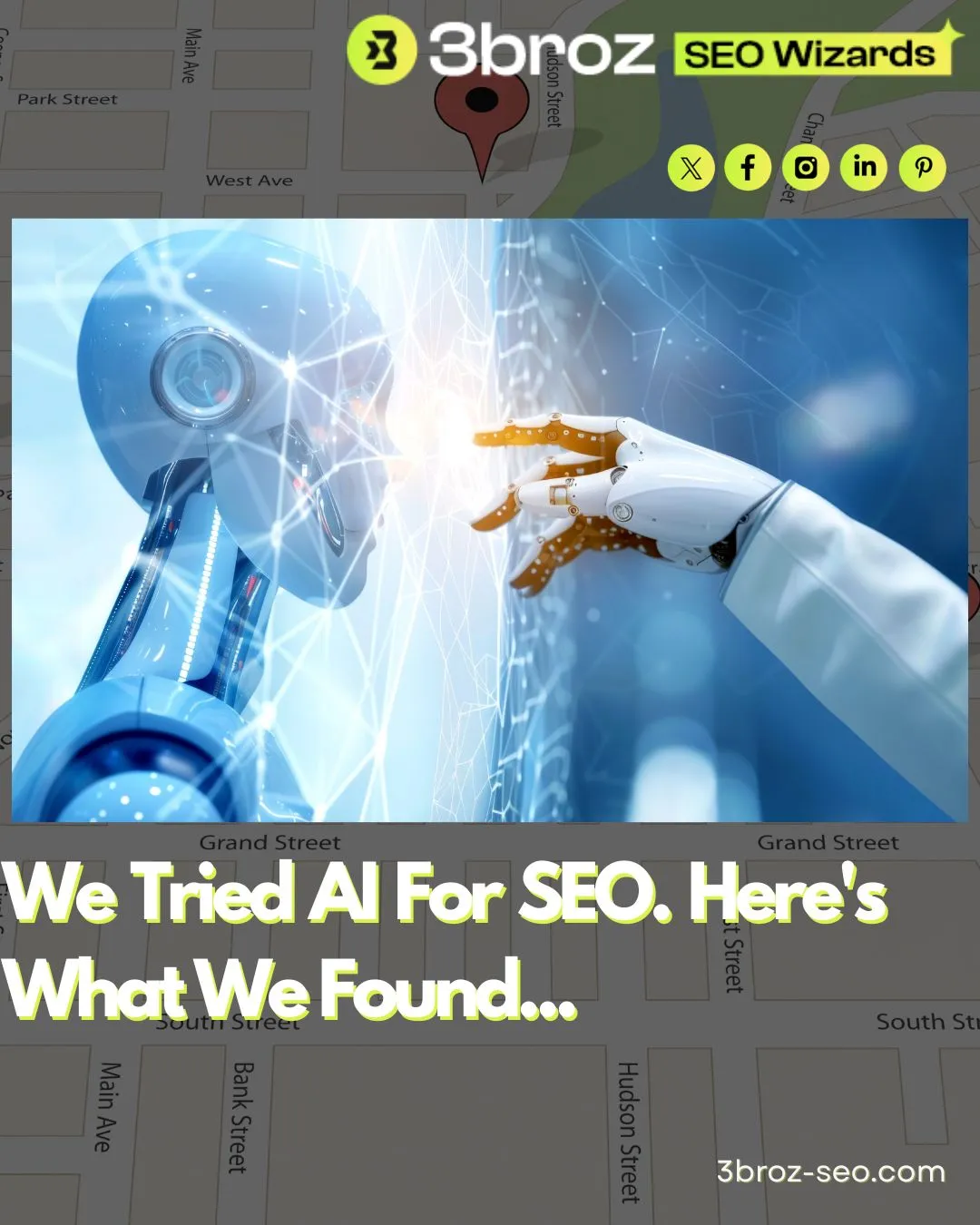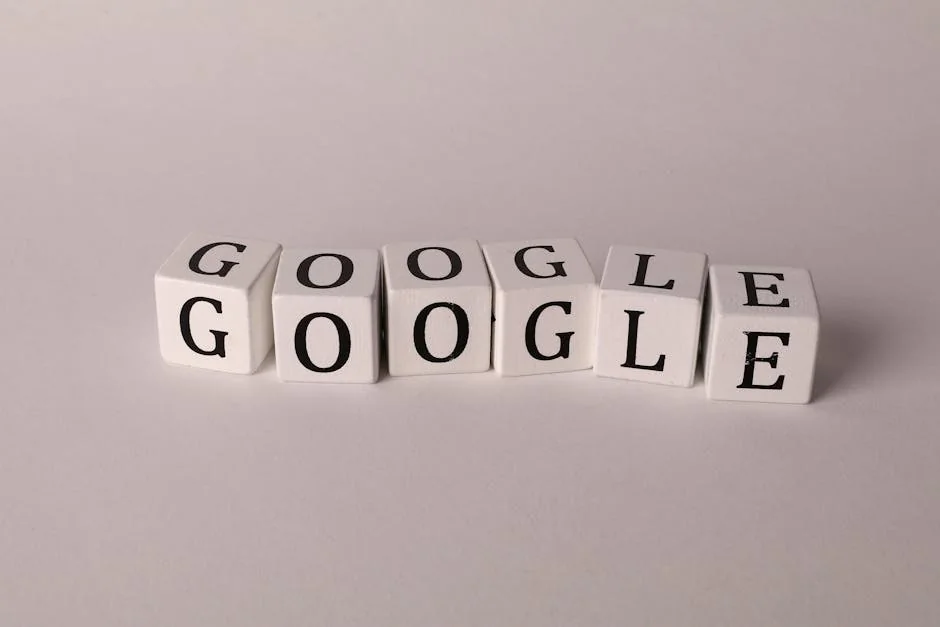We Tried AI For SEO. Here's What We Found...
Picture this: You’re drowning in keyword research, competitor analysis eating up your afternoons, and content optimization feeling like an endless puzzle. Sound familiar? We’ve been there. That’s why we dove headfirst into the world of AI for SEO—and what we discovered might surprise you.
After months of testing, tweaking, and transforming our approach, we’re pulling back the curtain on what really works (and what spectacularly doesn’t) when you blend machine learning with ranking strategies.
How to use AI for SEO
Let’s cut through the buzz and get practical. Using AI for SEO isn’t about replacing your brain—it’s about amplifying it. Think of these tools as your digital assistant that never needs coffee breaks.
Start with content ideation. When you implement AI for SEO strategies, feed your target topics into smart platforms and watch them generate angles you hadn’t considered. But here’s the secret sauce: treat these suggestions as starting points, not finish lines. The magic happens when you blend machine-generated insights with genuine human expertise.
Next, leverage automation for technical audits. These systems can crawl thousands of pages in minutes, spotting broken links, missing meta tags, and optimization opportunities that would take humans weeks to uncover. It’s like having x-ray vision for your website’s health—that’s the true power of AI for SEO.
The real game-changer? Using intelligent tools for competitor gap analysis. They reveal exactly what your competitors rank for that you don’t—transforming guesswork into strategic precision.
The SEO Issues Of Using AI Tools For Content Optimization
Now for the reality check. AI for SEO isn’t a magic wand, and we’ve learned some hard lessons along the way.
The Authenticity Problem: Machine-generated content often reads like… well, machine-generated content. It lacks the subtle nuances, personal experiences, and emotional connections that make content truly resonate. We’ve seen websites tank their rankings by publishing robotic articles that technically check all the optimization boxes but fail the human test.
The Over-Optimization Trap: These tools love keywords—sometimes too much. Following their recommendations blindly can lead to keyword stuffing that makes your content unreadable and, ironically, hurts your rankings. Google’s algorithms have gotten scary-good at detecting and penalizing this behavior.
The Context Blindness: Automation struggles with context, humor, and cultural references. It might suggest optimizing for a trending term without understanding why that term could damage your brand. Remember when everyone jumped on certain viral trends that aged terribly? Machines don’t have that foresight.
The Update Lag: Search algorithms evolve constantly, but many AI for SEO tools lag behind these updates. Relying solely on automated recommendations means you might optimize for yesterday’s ranking factors while missing today’s opportunities.
The solution? Use these tools as advisors, not dictators. Every recommendation should pass through the filter of human judgment and brand alignment.
Can AI Replace Traditional Keyword Research?
Here’s where things get interesting. We tested this theory extensively with various AI for SEO tools, and the answer isn’t what most marketers expect.
Machine learning excels at processing massive datasets, uncovering long-tail opportunities, and predicting search trends before they explode. It’s like having a crystal ball for content planning. These systems analyze millions of search queries, identifying patterns humans would miss.
But—and this is crucial—traditional research still holds irreplaceable value. Why? Because understanding search intent requires human intuition. AI for SEO might tell you that “bankruptcy lawyer near me” gets 10,000 monthly searches, but only human insight recognizes the desperation and urgency behind that query.
The sweet spot? Combine both approaches. Let automation handle the heavy data lifting while you focus on understanding the human story behind each search. This hybrid method, which we’ve refined through our ORC (Optimum Ranking Calibrator) approach, ensures you’re not just visible—you’re connecting with real people facing real problems.
The Top 3 AI SEO Tools We Use In 3 Broz SEO
After testing dozens of AI for SEO platforms, three powerhouses consistently deliver jaw-dropping results for our clients. These aren’t just tools—they’re the secret weapons behind websites that dominate search results.
Semrush: The Intelligence Command Center Imagine having a spy network that reveals everything about your competitors’ digital strategies. That’s Semrush. This platform doesn’t just show you keywords—it exposes your competitors’ entire playbook. We’ve uncovered hidden content gaps worth thousands in monthly traffic, discovered untapped keyword goldmines, and identified backlink opportunities our clients’ competitors never saw coming. One client discovered their competitor was ranking for 2,400 keywords they’d never targeted. Six months later? They owned those rankings.
NeuronWriter: The Content Optimization Genius Ever wonder how some content seems to magnetically attract Google’s attention? NeuronWriter reverse-engineers that magic. This intelligent AI for SEO platform analyzes top-ranking content and creates a blueprint for success—without copying. It’s like having a master chef reveal their secret recipe, then helping you create your own signature dish. We’ve watched “dead” content resurface to page one after NeuronWriter optimization. The result? Content that doesn’t just rank—it converts visitors into customers.
Claude AI: The Strategic Writing Partner While others chase basic content generation, we leverage Claude’s advanced capabilities for something far more powerful—strategic content architecture. This isn’t about churning out generic articles. We use Claude to craft compelling narratives that weave keywords naturally while maintaining that human touch Google craves. It helps us transform complex topics into engaging stories that both search engines and humans love. The best part? It maintains your unique brand voice while hitting every optimization target.
Together, these three AI for SEO tools form the backbone of our Optimum Ranking Calibrator method—creating a 360-degree approach that doesn’t just get you found, but turns browsers into buyers.
So, Can AI replace SEO?
Let’s address the elephant in the room. After extensive testing, countless experiments, and analyzing mountains of data, here’s our verdict:
Artificial intelligence cannot replace search optimization—it transforms it. Think evolution, not extinction.
The future isn’t about choosing between human expertise and machine efficiency. It’s about orchestrating both into a symphony of digital marketing excellence. Automated systems handle data analysis, pattern recognition, and technical optimization at scales humans can’t match. Meanwhile, human strategists provide creativity, empathy, and strategic thinking that machines can’t replicate.
Consider this: machines can identify that certain content ranks well, but humans understand why it resonates with readers. Automation can generate 100 title variations, but humans know which one will make someone stop scrolling. This combination—what we call the Optimum Ranking Calibrator approach—creates unstoppable online visibility.
The businesses winning today aren’t those using only traditional methods or only automation. They’re the ones seamlessly blending both, creating content that satisfies algorithms while genuinely serving human needs. They’re turning websites into client-generating machines that work around the clock.
Ready to harness this powerful combination for your business? The digital landscape rewards those who adapt intelligently, combining cutting-edge technology with timeless human insight. Your competitors are already exploring these possibilities—the question is, will you lead or follow?
Related Services
Frequently Asked Local SEO-Related Questions
-
How much does it cost to implement AI for SEO strategies?
Investment varies wildly—from free trials to enterprise solutions costing thousands monthly. Smart businesses start small, testing individual tools before scaling. The real question isn't cost but return. We've seen $200 monthly investments generate $20,000 in new revenue. The ORC method maximizes every dollar spent.
-
How long before I see results from AI-powered optimization?
Quick wins appear within 2-4 weeks—improved rankings for low-competition keywords, better click-through rates. Substantial traffic increases typically emerge after 3-6 months of consistent implementation. The secret? Patience combined with relentless optimization. Your competitors won't wait—every day delayed is opportunity lost to businesses already leveraging these strategies.
-
Do I need technical expertise to use these AI SEO tools effectively?
Most platforms offer user-friendly interfaces designed for marketers, not programmers. Basic computer skills suffice for entry-level features. However, extracting maximum value requires strategic thinking and experience interpreting data. That's where partnering with specialists accelerates results—transforming complex insights into actionable strategies that turn your website into a revenue-generating powerhouse.





















